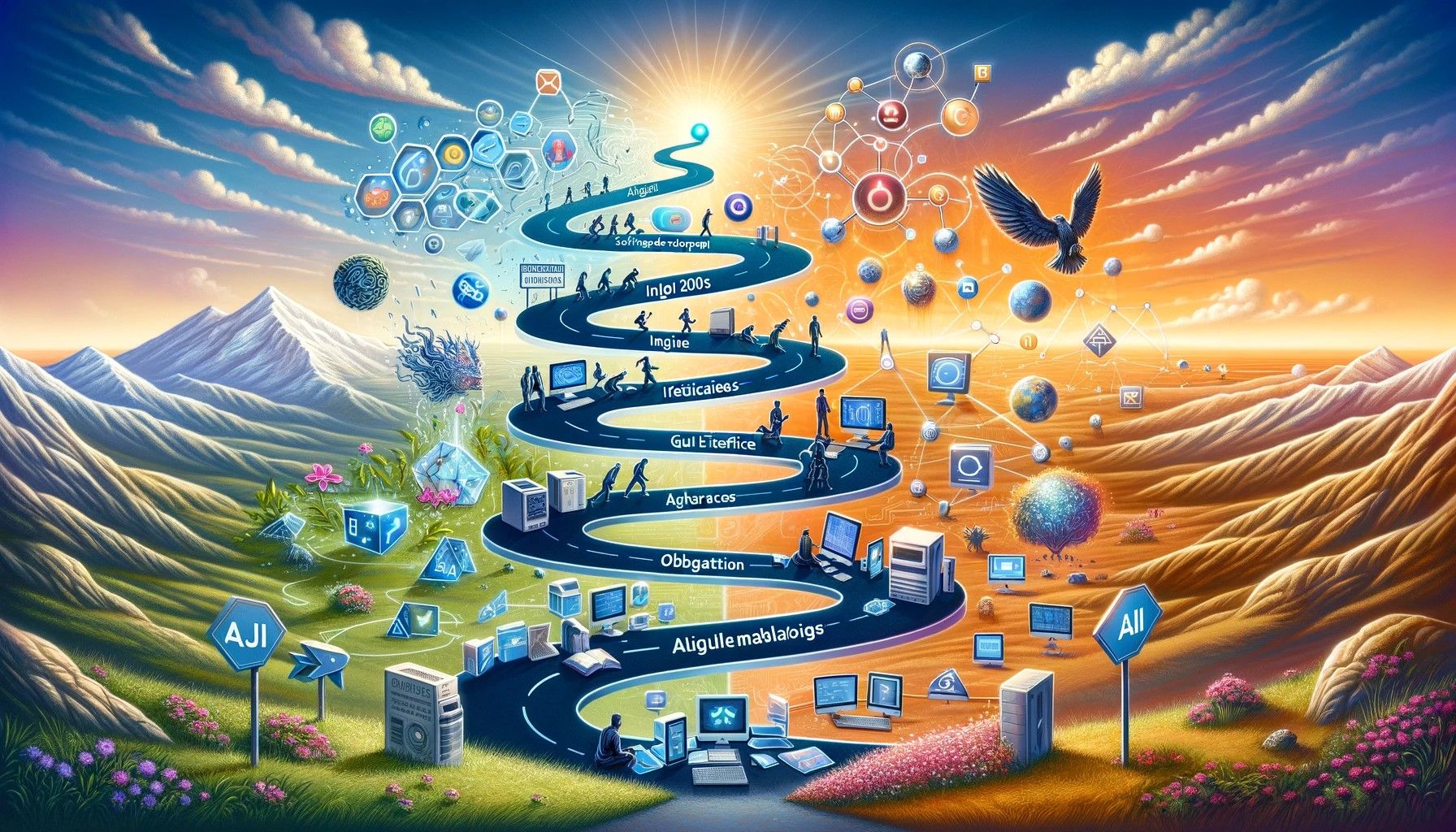If you fail at Agile, you will fail at AI
by Jim Highsmith
This is a quote I have used in a couple of recent events.
As an experiment, I loaded ChatGPT with context in the form of a couple of my books and articles. Then I prompted:
"write a 250 word LinkedIn post on the topic-"If you failed at Agile you will fail at AI". You will need to be agile in the turmoil caused by the 63,000 AI companies in the world today.
What follows is, word for word, the results of that prompt, I didn't change a thing. Took 10 minutes. Did the same with Dall-E for the image in 30 seconds. Scary huh!!!
Navigating the complexities of today's tech landscape, especially with the explosion of over 63,000 AI companies globally, demands more than just innovative thinking—it requires agility. A common misconception I have observed is the separation of Agile methodologies from the realm of AI development and implementation. However, the truth is, if you have struggled with Agile, you might find yourself facing even greater challenges with AI.
Why? Because the core principles of Agile—flexibility, continuous improvement, and customer-centricity—are not just the foundation for successful software development; they are also crucial for AI projects. AI, with its rapid advancements and transformative potential, demands an environment that fosters quick adaptation and iterative learning. Without the agility to pivot and evolve, projects become susceptible to stagnation or failure in the face of unexpected challenges.
The sheer volume of AI companies and the speed at which the field is evolving further underscore the need for an Agile mindset. To thrive amidst this turmoil, organizations must embrace change, experiment fearlessly, learn from failures, and adapt strategies swiftly. The iterative approach advocated by Agile methodologies aligns perfectly with the experimental nature of AI, where success often comes from continuous testing, learning, and refining.
In conclusion, mastering Agile is not just about improving project management or software development processes. It's about cultivating a culture and mindset that values adaptability, continuous learning, and resilience—qualities that are indispensable in the age of AI. So, if you're aiming for success in the AI-driven future, start by embracing and enhancing your Agile practices. The journey might be challenging, but the rewards of innovation and growth are well worth it.
Part 1 of this post was greeted with both agreement and skepticism. As an experiment, Part 1 was written, in part, to indicate the fledgling capability of ChatGPT. Part 2 I wrote.
In a 2002 book I defined agile as “the ability to both create and respond to changes in order to profit in a turbulent business environment.” In the early 2000s the internet, GUI interfaces, and OOP drove changes in both organizations and software development. External events drove internal changes and those who were better at adapting led their competitors.
Today, AI, Web 3.0, immersive computer interfaces, and more will drive changes all the way to the executive suite. In 2000 many predicted change, but not Uber, Airbnb, or Facebook. Today we acknowledge changes are imminent, we just don’t know how, or where, or how much. With an estimated 63,000 AI related businesses in the world, and everyone in every industry racing to embrace AI, no one knows what will happen.
What we can do is prepare, and that will require even greater adaptability or agility as Steve Denning's recent Forbes articles articulate. The basic preparation formula “AI is causing change; agility provides a mindset and practices to respond to changes.” At its core agile mindset drives a continuous learning journey to adapt to change. If we, as individuals or organizations haven’t learned to adapt, regardless of the label used, we won’t be able to utilize AI effectively.
References
Denning: https://lnkd.in/gdbvWP56
2002 Book: Agile Software Development Ecosystems
Original article written by Jim Highsmith and authorized to be published in the World Management Agility Forum by Jim Highsmith.